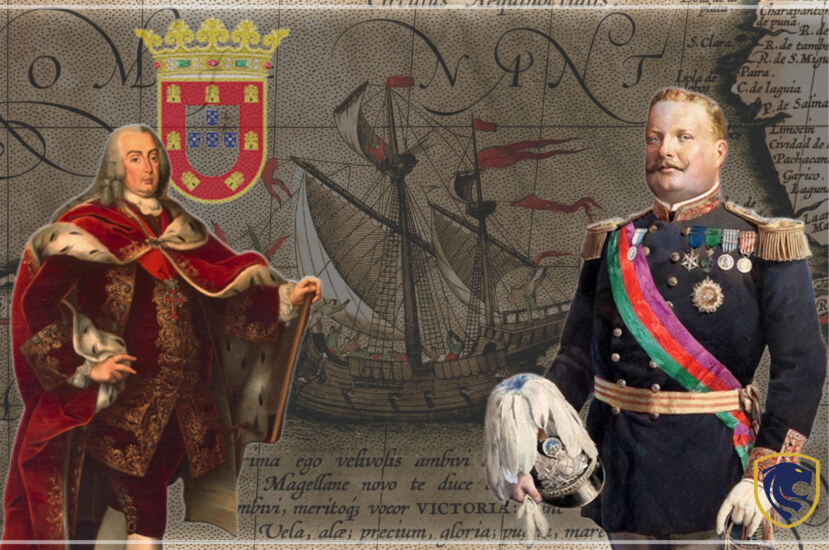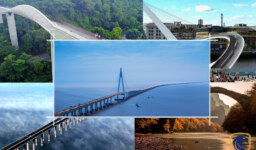Portugal is located in the west of Iberian Peninsula and has a long coastline facing the Atlantic Ocean. Portuguese Empire is the oldest empire, having started their empire in 15th century. Portuguese explorers were the first to discover sea routes to Asia and Africa. The reason for Portuguese inclination for sea adventures and for being an ocean bound country is supposed to be to be due to their geographic location. Because a long stripe of the country is facing the Atlantic coast line.
Portugal had two main objectives for acquiring colonies. They conquered other countries to flourish their trade activities by acquiring other nations’ resources. On the other hand, they had the intent of spreading Christianity in other countries. They felt it’s their utmost responsibility to spread their religion in the face of Muslim expansion.
The Portuguese Empire got a backlash due to the sufferings inflicted on natives. They started slave trade and their subjects were badly exploited and forced to engage in extensive labor. Furthermore, in some nations cultural inheritances were disappeared. And the colonies had to undergo constant war fares.
First Expedition

The Portuguese commenced their string of exploration at the Portuguese coast and it was followed by the invasion of the Moroccan coast.
Moreover, the Portuguese navigators started exploring across the board. In the process, they disclosed Atlantic islands of the Canaries, Madeira, Azores and Cape Verde. The technology and cartography, they took use of were modern and advanced at the time.
West Africa
The Portuguese were interested in finding gold and salt trade in African countries. So, Portuguese invaded West African countries like islands of Sao Tome and Principe which are situated off the southern coast of West Africa in 1482. They established settlements to get benefits from African systemized trade. They traded gold, ivory, pepper, beeswax, gum, and dyewoods. Moreover, slaves were captured from the Kingdom of Kongo exchanged them for European trade goods like cotton cloth, mirrors, knives, and glass beads.

South Asia
Vasco da Gama was the first European to set on foot in India via sea route. He arrived in India with the intention of discovering a sea route, so that they can enter into the lucrative spice trade. There was a huge demand for spices like of pepper, ginger, cloves, nutmeg, and cinnamon. After talks with the ruler in Cochin(Kochi) a fortress was constructed in 1503, anticipating to do more great businesses. Later they ensured their monopoly on the spice trade. And kochi was replaced by Goa in 1530.

Goa was the center where all trade and other affairs, activities in Asia were directed. Furthermore, council was set up to look into local issues like taxation. There were an archbishop or bishop, and churches, monasteries, convents, to view religious affairs. In addition, in 1505 they arrived in Ceylon and discovered the best cinnamon.
East Asia
The spice islands(Malacca) in Indonesia were famous for spices. In 1511 Malacca was invaded. Furthermore, in 1512, they got control of sandalwood trade in Timor.

The Portuguese were keen on getting access to the China’s silk trade. So, they set up a center on the peninsula of the Pearl River delta in southern China. In order to access silver, they established a center in Nagasaki, but in 1963 all the foreigners were expelled under the Japanese isolation policy.
Brazil
The Portuguese came across Brazil in 1500. Brazil was abundant with natural resources like hardwoods, diamonds, and gold. Portugal made brazil an official colony of their empire in 1572. Moreover, they produced sugar and tobacco and brought in African slaves to work in those fields.

Southern Africa
Acquiring Angola region into Portuguese empire in 1571 was the first time an African country became a European colony. But there were no silver mines as expected, and the resources were meagre. Slave trade was carried out in Angola. Approximately 10000 slaves had been sent to Brazil, Luanda and America from Angola.

The Portuguese arrived in Mozambique Island in 1506. Mozambique was not plentiful of gold as anticipated, but Portuguese could find ivory, and slaves were available there.
Fall of Portuguese Empire
In that era, the Portuguese Empire faced rivalry from other European countries. They were eager to acquire the Portuguese empire. Also, the Portuguese empire was in an unfavourable situation as Portuguese forts were not given proper attention. And there was no supportive local populace in case of a trouble. English and French privateers confiscated Portuguese trade ships as they were sailing along.
Ferdinand Magellan was a Portuguese explorer. He sailed all the way around the globe. The other European countries also followed his route and discovered Portuguese invaluable spice trade. And the Portuguese Empire lost the monopoly they exercised in the East.

The Portuguese faced multiple attacks from the Dutch. For instance, Mozambique was attacked in the 17th century, Macao in 1622 and 1626, and Angola in 1641. Moreover, in the 1620s and 1630s, the Dutch attacked and occupied some parts of northern Brazil. They captured Malacca in 1641, Colombo in 1656, and Cochin in 1663. Britain helped the Arabs retake Hormuz in 1622. As a result, in the 18th century, the Portuguese in Brazil were forced to give away their trade rights to the superior maritime powers of Britain, France, and the Netherlands.
Internal Threats
In Brazil, the locals fought for equal rights for all citizens. They could gain independence in 1822. After that, Pedro 1 was appointed as their first emperor. He happened to be the son of João VI of Portugal, which helped to continue a good rapport between the two countries.
By the 20th century, Portuguese Empire lost many of its colonies due to the other rivalry countries or internal revolts.

Antonio de Oliveira Salazar who ruled Portugal from 1932 to 1968 was an autocratic leader. The African countries, Angola and Mozambique fought against Portuguese Empire at the time. But being an autocrat, he refused to give the independence. Ultimately the countries that include the Cape Verde islands, São Tomé and Principe, East Timor, Angola, and Mozambique gained independence from Portuguese Empire in 1975. Furthermore, Maco was given back to China in 1999.
Likewise, the Portuguese Empire came to an end. Portugal could retain some conquered territory for a longer period. Goa retained under the Portuguese Empire until 1961 and Goa came under Indian administration in 1962. The Azores and Madeira with overwhelmingly Portuguese population were the only colonies which remained under Portuguese empire. Portugal made both the countries autonomous states later.

Failed Attempt
In 1578, the ruler in Portugal was King Sebastian. He tried to invade a north African city, but he lost his life in the battle. Subsequently Portugal came under Spain, until they got independence in 1640. There was a pervasive belief among people, that the king would return to bring back the lost glory to Portugal. It is known as “Sebastianism”.
Legacy of Portuguese Empire
Portuguese language is spoken in several countries. For instance, it’s an official language in Brazil, Cape Verde, Angola, Mozambique, Guinea-Bissau, Sao Tome and Principe.

Catholicism is followed in many countries. And in some part of the world new crops were introduced such as manioc, maize, and sugar cane during the Portuguese Empire.




